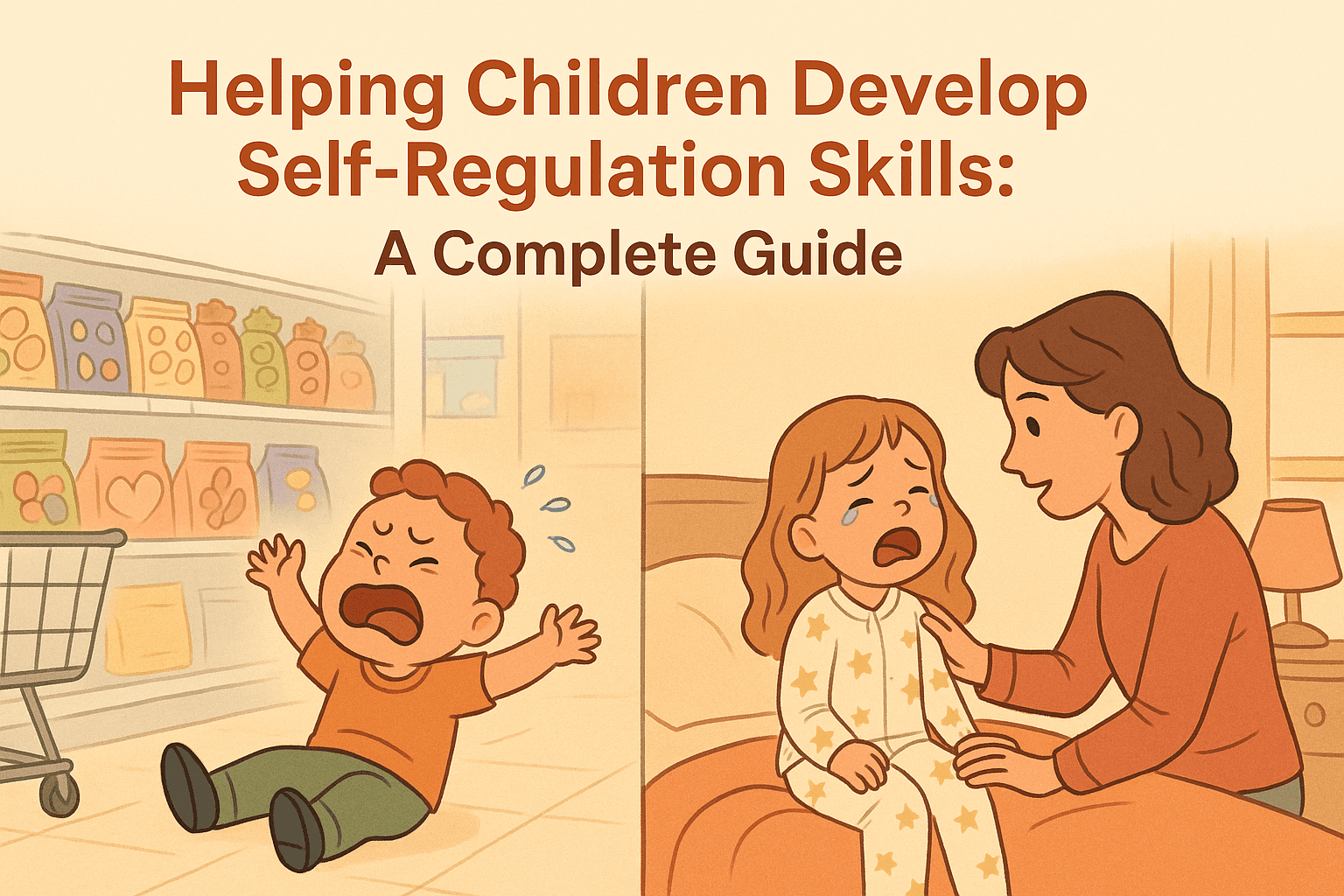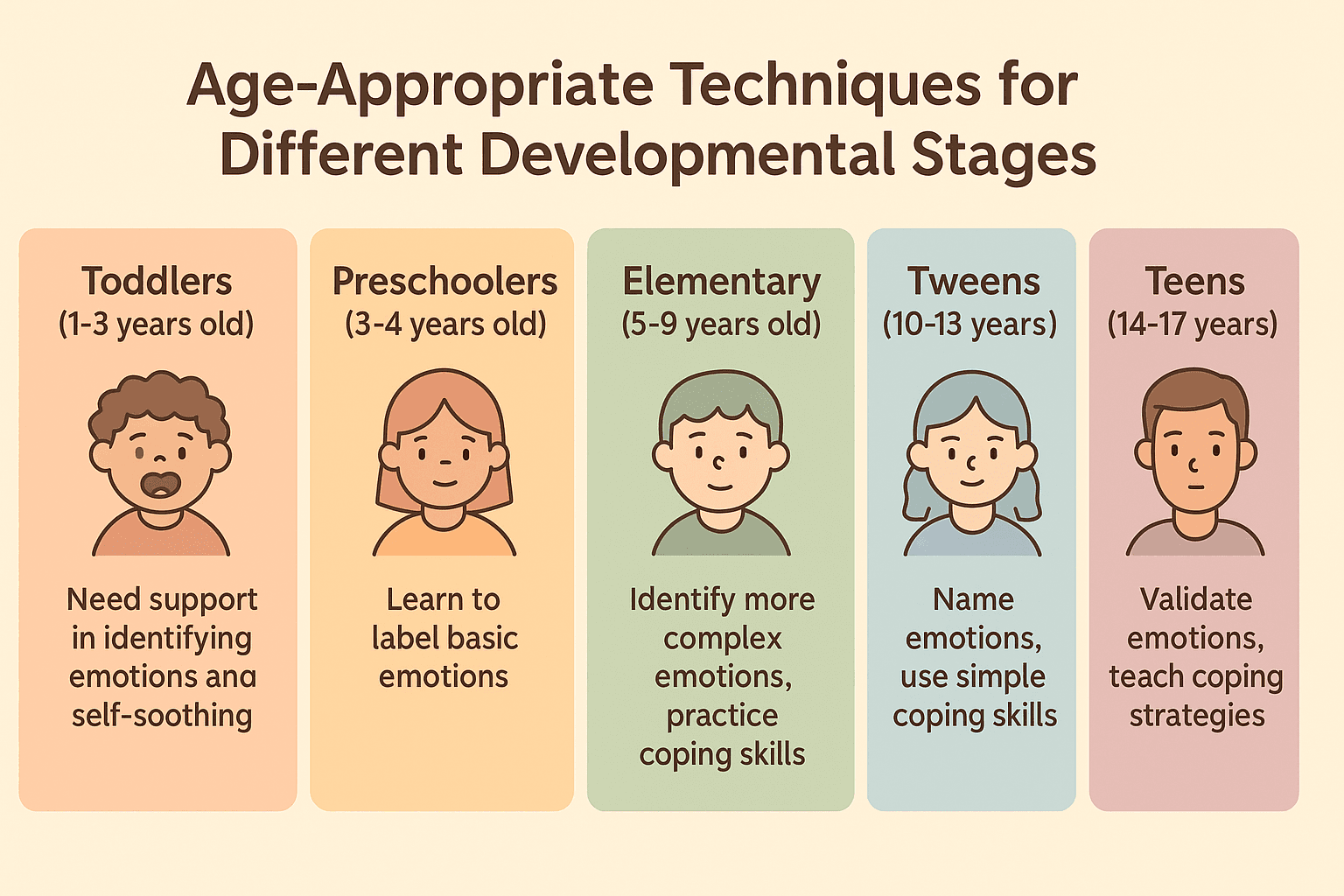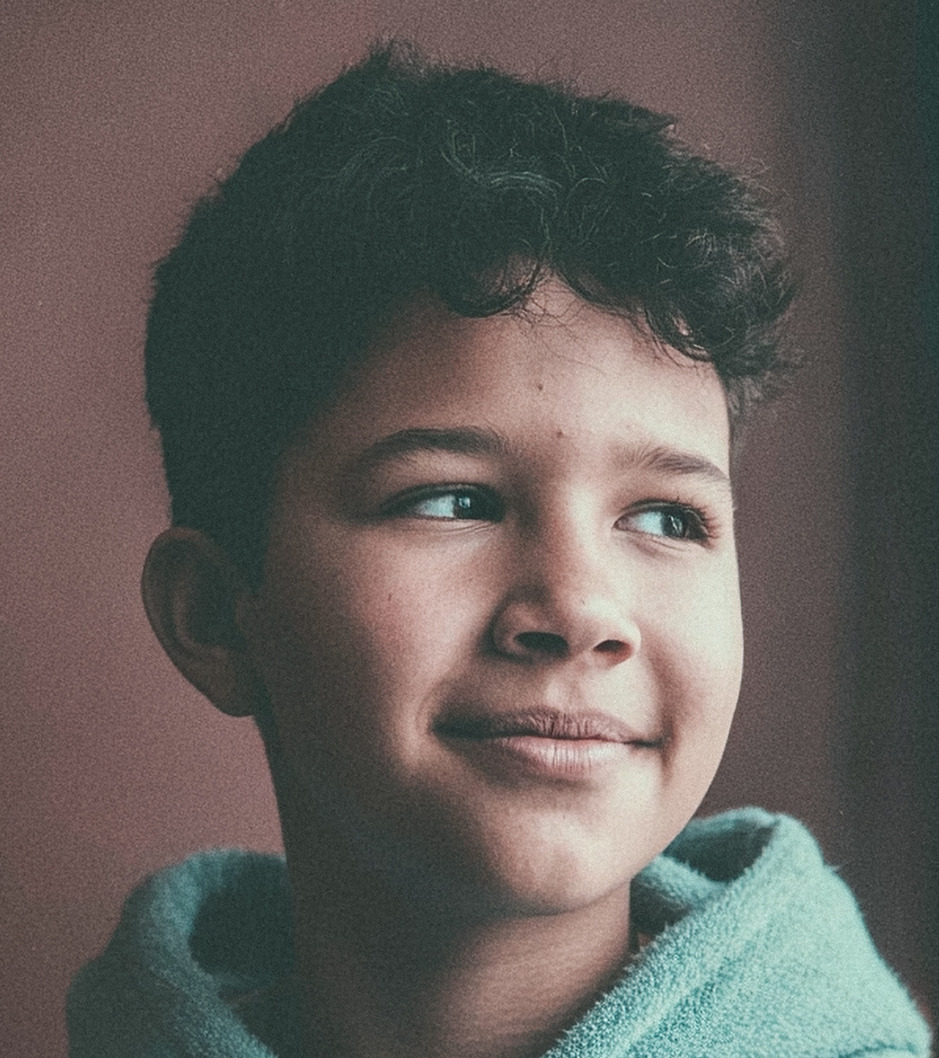Helping Children Develop Self-Regulation Skills: A Complete Guide
Teach your child to manage big emotions and avoid tantrums. Learn practical strategies—routines, coping skills, and emotion naming—to help kids stay calm under pressure.



Tantrums in the candy aisle, bedtime tantrums, and overreactions —sound familiar? These are things that occur when a child hasn’t yet learned self-regulation. Let’s face it: kids aren’t born with the ability to manage their emotions — they must be taught. Here’s how you can teach them how to stay cool when big emotions show up.
Key Takeaways
- Self-regulation skills help your child express and manage emotions adaptively.
- These skills help your child stay calm even when they are frustrated, angry, or worried.
- Parents can help kids develop self-regulation skills by creating a consistent routine, teaching coping skills, and encouraging them to name their emotions.
What are self-regulation skills?
Self-regulation skills for kids refer to the ability to manage intense feelings in a healthy, productive way. For kids, this means taking a moment before reacting when mad and finding ways to calm down that don’t involve hurling toys across the room.
Why is self-regulation important for children?
Self-regulation is important because it’s the skill behind staying calm when being told “no.” Without it, your child would throw tantrums every time they are told “no.” For most kids, self-regulation is a skill they must learn from teachers, parents, and other caregivers.
How self-regulation skills develop
Wondering why your kid can’t calm down when it’s time to end a playdate? The answer is that they haven’t yet learned self-regulation. Children aren’t born with fully developed self-regulation skills. That’s because this ability is closely connected to the prefrontal cortex, which is the part of the brain that controls impulses. This part of the brain is still developing in young children. So, a child might hit their brother without even thinking about it because of a lack of impulse control skills.
Recognizing when children need support with self-regulation
Signs that a child needs help with self regulation includes frequent or intense emotional outbursts, impulsive behavior, being unable to calm down easily, and difficulty in social interactions.
Effective strategies to teach self-regulation skills at home
Self-regulation is a skill children learn over time. It’s like learning to tie their shoes or ride a bike. It takes time and parental guidance. As a parent, you play a powerful role in helping your child learn self-regulation. With the right help, your child will learn how to pause and think about the consequences before reacting.
Creating supportive environments
A predictable routine — think consistent mealtimes, transitions, and bedtimes provides a sense of security and predictability, things that can make emotional regulation easier. Kids should also have safe, outdoor places where they can play. Spending time in nature can help boost your child’s mood. So, can physical activity.
Make your household one in which emotions are openly discussed. Encourage your kids to express how they feel. When your child expresses how they feel, don’t minimize their feelings. Don’t tell them that they are “fine” if they say that they are feeling sad.
Respond with empathy and positive reinforcement rather than punishment. Research has found this works better. When your child has a meltdown, approach the situation with understanding and empathy.
A designated calm space can be helpful, too. Provide an area where they can go for self-soothing.
Modeling self-regulation as parents and caregivers
Talk about your emotions. You might say something like “I’m feeling overwhelmed right now.” I’m going to take a moment to calm down before I respond. This teaches your kids that everyone has emotions. It also shows them how to appropriately respond to them.
Set boundaries. Help your child understand that certain behaviors are not acceptable. You might say, “I can see that you are upset with your brother. But it’s not okay to hit him. Let’s calm down and find another way to tell him what you want.”
Age-appropriate techniques for different developmental stages
- Toddlers (1-3 years old): At this age, kids don’t yet have the emotional regulation skills to calm down on their own. They need support both in identifying their emotions and in learning self-soothing skills.
- Preschoolers (3-4 years old): Preschoolers are at the age where they can learn to label basic emotions. You can help them by saying things like “you seem really mad right now.”
- Elementary (5-9 years old): Kids this age can learn to identify more complex emotions like “nervous” and “disappointed.” You can use visual aids like a feelings chart to help them identify various emotions. Spend time practicing coping skills with your child. You might do things together, like deep breathing. Don't practice these only when your child is angry; practice them when they are calm, as well.
- Tweens (10-13 years old): Let your tween know that ALL emotions are okay. Help them identify and name emotions. You can use visual aids to do so. Teach simple coping skills like deep breathing and practice these with your tween. Don’t criticize your tween. Instead, focus on positive reinforcement and teachable moments.
- Teens (14-17 years old) - Teens closely watch how parents respond to their emotions. Validate their emotions. This helps to build trust. Don’t try to fix everything for them. When they are calm, help them reflect on how they handled their emotions in situations. Use everyday moments to teach coping skills. Help them create healthy routines for meals, sleep, and downtime. Don’t shame or embarrass your teen because of how they manage emotions.

Simple activities that strengthen self-regulation abilities
Self-regulation skills for kids is the ultimate superpower—it can help your child learn how to navigate emotional rollercoasters. The good news is that there are plenty of simple, fun activities that you can use to help your child learn how to control their emotions. These activities will help your child tap into their inner calm.
Mindfulness and breathing exercises
Teach these exercises when your child is not angry or upset so they know what to do ahead of time.
- Belly breathing: Encourage your child to lie down or sit comfortably. Tell them to put one hand on their belly and one on their chest. Next, have them inhale deeply and pretend they are smelling freshly-baked chocolate chip cookies. Tell them to breathe out like they are blowing out a birthday candle (but slowly) and make their belly hand go down.
- Mindful eating: This can teach your child to become more aware of things around them, as well as their emotions. Give your child an apple or another snack (preferably one that has crunch). Ask them to: look at it, smell it, feel it, listen (as they bite it), and taste it. Ask what they notice. This teaches patience and awareness of the present moment.
- Bubble Breaths: Ask your child to pretend like they are blowing the largest bubble ever. Tell them to take a deep breath and very slowly blow in through their nose. Then, blow out very slowly. Tell them not to blow too hard or fast, otherwise the bubble might pop.
Games that build emotional awareness and control
- Draw your emotions: Give your child a piece of paper and pencil or crayons and ask them to draw what their feelings are like today. This helps them to identify and non-verbally express their emotions.
- If I Were…: This is a great game to teach empathy. Ask your child to imagine various scenarios (If I were), like being the new kid at school. Have them identify how they would feel in this situation.
Physical activities that enhance self-regulation
Yoga for kids is a great physical activity that enhances emotional regulation. It teaches mindfulness and can help with stress-management. Balance challenges are another great physical activity for self regulation. These activities help with focus and require impulse control. Examples include slowly walking backwards, and line walk challenges (walking a straight line without falling off).
How to support children who struggle with self-regulation
There are many ways you can help with self-regulation skills for kids. First, stay calm and respond with empathy. Help them name their emotions. Suggest calming activities to help them regain control. Finally, use positive reinforcement to recognize when they do manage their emotions.
Working with teachers and schools to reinforce self-regulation skills
Don't wait until there's a crisis to reach out to your child's teacher. Get in contact with their teacher or school counselor at the beginning of the year. Let them know that you are working on teaching your child self-regulation skills at home. Ask the teacher or counselor what strategies they would recommend. Talk about what has worked at home. Check in regularly with the teacher and school counselor. When challenges arise, avoid shaming or blaming your child's teacher or counselor. Instead, collaborate with them.

Get the most out of therapy
Find the right questions to ask your child’s therapist so you can support their emotional growth at home and at school.
Conclusion
Emotional regulation isn’t something that children are born knowing how to do. They develop this skill over time with support from adults. You can help your child greatly by modeling how to express emotions in a healthy way and equipping your child with coping skills.
Helping Your Child Gain Control—With Support That Goes Beyond Home
There may be times when parents' efforts aren’t enough to help a child develop self-regulation skills for kids. Some kids need outside help, and that is okay. You don’t have to do this alone. If your child is struggling intensely with self-control, consider bringing in some outside help.
At Emora Health, our skilled child and adolescent therapists specialize in helping kids develop self-regulation skills. Through various therapeutic techniques, we help children—and their families—thrive. Reach out today to schedule a free consultation.





